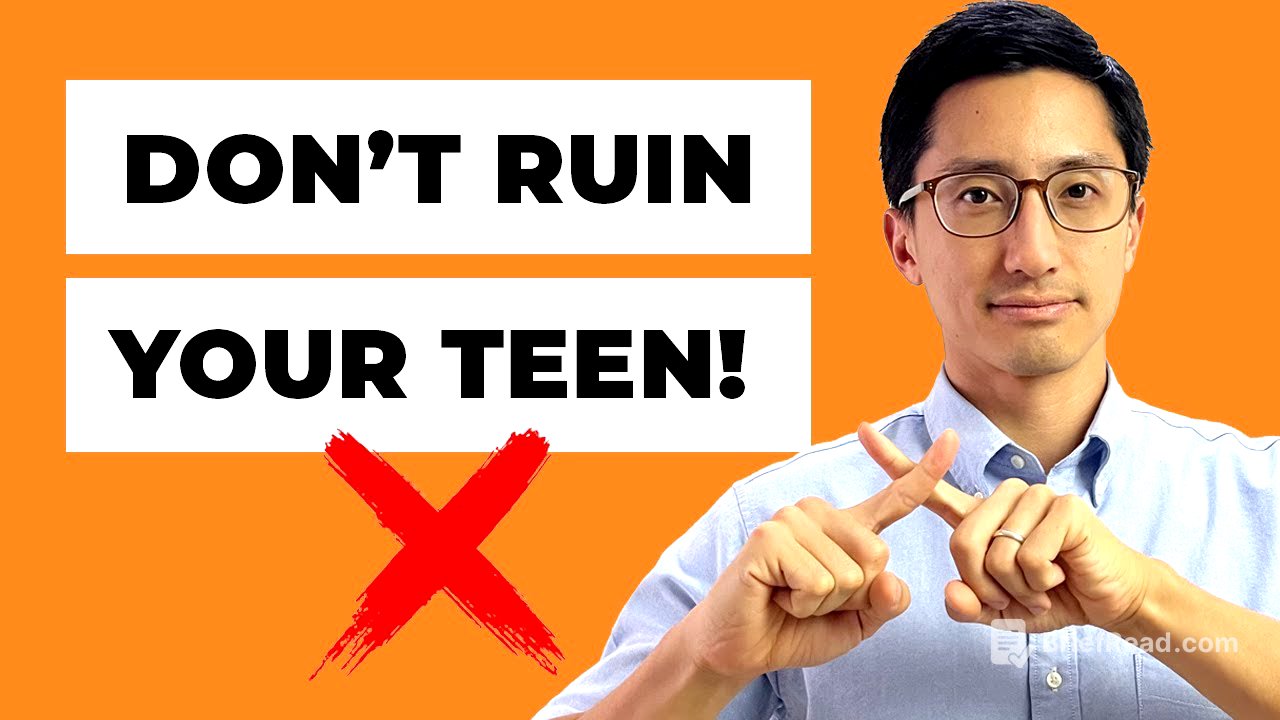TLDR;
This video discusses four common parenting mistakes that can negatively impact teenagers. These include constantly pointing out flaws, invalidating feelings, speaking condescendingly, and overprotecting them from the consequences of their actions. The video emphasizes the importance of focusing on progress, acknowledging emotions, listening to teens' perspectives, and allowing them to learn from natural consequences.
- Avoid constant criticism and focus on acknowledging progress.
- Validate teens' feelings to foster emotional regulation and prevent suppression.
- Listen to teens' perspectives and avoid condescending communication.
- Allow teens to experience natural consequences to learn responsibility.
Intro [0:00]
Daniel Wong introduces the topic of parenting mistakes that can negatively affect teenagers, drawing from his experience working with rebellious, unmotivated, and troubled teens. He outlines the video's purpose: to explain four common mistakes parents make and how to avoid them.
Mistake #1 [0:23]
The first mistake is continually pointing out a teenager's flaws and areas for improvement through constant criticism. While constructive feedback is sometimes necessary, frequent criticism can lead to anger, resentment, withdrawal, and lower self-esteem. Instead of focusing on perfection, parents should acknowledge and encourage progress to motivate their teens to improve.
Mistake #2 [1:57]
The second mistake is invalidating a teenager's feelings, which makes them feel like their emotions don't matter or are wrong. Examples of invalidation include telling teens there's no reason to feel sad or that they're too sensitive. Emotional invalidation can lead to the suppression of feelings and even conditions like borderline personality disorder (BPD), which makes it hard to regulate emotions. It's crucial to acknowledge and empathize with teens' feelings to help them learn effective emotional management.
Mistake #3 [3:28]
The third mistake is speaking to teenagers as if you always know better than them. Teens today often perceive themselves as more progressive and educated due to their exposure to technology and information. While this can lead to "artificial maturity," where they are knowledgeable but emotionally immature, talking down to them will cause them to withdraw and be less willing to share their thoughts and feelings. Parents should listen to their teens' perspectives and try to understand their viewpoints, even if they disagree, because teens change when they feel understood, not just when they understand why they should change.
Mistake #4 [6:04]
The fourth mistake is continually protecting teenagers from the natural consequences of their actions. Over-sheltering teens prevents them from learning that choices lead to consequences. While showing compassion is important, consistently bailing them out leads them to believe someone will always rescue them. Parents should allow teens to experience natural consequences in small ways, such as not doing their laundry, without lecturing them.
Conclusion [8:20]
Daniel Wong concludes by offering a free resource, a quick action guide titled "10 Proven Ways to Get Your Teenager to Listen to You," available for download at daniel-wong.com/guide. He encourages viewers to subscribe to his YouTube channel for more videos and suggests watching another video on things parents should never say to their teens.









